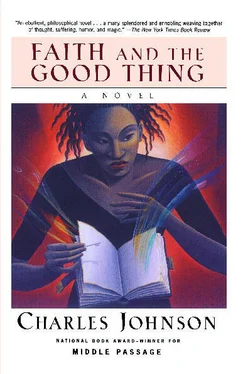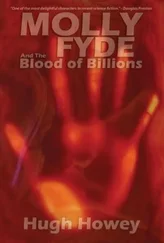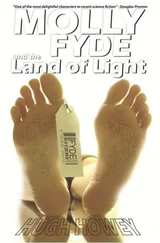Faith shouted at Lynch’s back, “That’s wrong ! Daddy said the oceans were tears from the eyes of angels!”
One stare, one sophisticated snarl from Lynch were sufficient to silence her. Testy, he said: “ Entia nun sunt multiplicanda praeter necessitatum, ” and scowled like a whale.
“Faith,” Lavidia said timidly, “please. ”
Lynch fumbled through his vest with one hand and, with a deadly drumming, struck his leg with his pipe bowl. His knotty jaw muscles flexed in the darkness, his wide eyes set on Lavidia. He found dry matches in his coat pocket and, without looking at his hands, carefully relit the bowl.
“It was a long time, aeons ago,” he said, turning to glower at Faith, “that the fissures split along the surface of the earth’s crust, and liquid granite was vomited to the surface. The continents were formed in this way.” Lynch leaned back in his chair, serene again, and fingered the stubble on his chin. Smoke streamed down in twin jets through his nostrils. He cracked his knuckles, leaned forward, and tapped Lavidia’s arm. “The earth was barren. For uncountable centuries the only activity was that of the volcanoes hurtling up their contents until the earth froze and thawed, for several such cycles — until something living struggled into being. What was it, Mrs. Cross? Was it man ? Will you submit that it, ha ha, was Adam ?” Lynch’s mouth smiled; really smiled. “It was slime ! At the ground floor of life are primitive blue-green algae. Like all life, that life is composed of cells that come together, working in a harmony that destroys the strength each cell possessed as an independent entity. Do you see?” Lynch cried. “Life brings death.”
He was on his feet, clutching the pipe in his right hand and limping across the room. He stared at his feet as though he’d heard a rumble, or a beast rising beneath the floorboards, cocked his head to the right like a curious rooter-dog, and waved his free hand through the air.
“Life itself is the condition of death — it’s self-evident. L’être amène le néant! That was the strange secret that created religion and poetry, Mrs. Cross — this incredible contradiction. Life, on the level of the cell, can continue indefinitely — the cell regenerates itself ad infinitum. But,” and he pointed his long pipe stem at Lavidia, “the cells come together to build a simple organism, to make algae and fish and. ” he paused, his eyes like saucers, “. and us. But life cannot support itself. From rest, from the nonliving, it springs forth; to it, it must return. And why? Why, in reason’s name, are we born only to die? The way of being of life itself, as supported by nonliving matter, ultimately requires the end of being, the weakening of the syncopated cells. the death of the organism.”
Lynch hurried back to his seat and bent forward, blinking as though about to cry, his lips close to Lavidia’s ear. He told her that the oceans shrank, that in the swamps plants appeared. “Can you witness this?” he asked. “Can you see it? Because, herewith, from dead matter to mollusks, from nothing to a plurality of life forms, man emerged through accident, madam! Life, as we know it, as we worship it, must come to know itself as an aberration — an accident in the universe — as God’s greatest jest. Yes! As a ridiculous longing for itself!”
Faith closed her eyes. It had not happened that way. There were no accidents, no mistakes in creation. She remembered Big Todd’s story of how black folks got to be that way: black. A gathering of souls in limbo were, after centuries of waiting, finally called to the Godhead for judgment. They all scrambled like evening commuters to get there, pushing and shoving until God, angered as only He can be, boomed, “Get back!” And all had thought He said, “Get black !” And they did exactly that. (Later, in the stillness of a summer eve, he told her the truth: from different colored clay were men made — and Faith believed him then.)
She saw Lynch exhale a long column of green smoke, exhausted as though he’d staged the historical drama of creation himself (and he had, children). Lynch rearranged Lavidia’s cotton gown around her shoulders and placed his fingers between her breasts.
“You take in close to twenty thousand breaths a day, at about twenty cubic inches of air per breath,” he said. “The air carries oxygen, which the body warms and filters. It’s moved to the bronchiae, on to the lungs, and finally to millions of cells that are air sacs surrounded by vessels and capillaries.” Lynch located a thick blue vein on Lavidia’s right breast and ran his ragged finger along its length. “Blood absorbs the oxygen through these cells and expels carbon dioxide. Fresh blood moves to the heart which pumps eight hundred gallons of blood each hour.
“A machine,” he said with slight disgust. “Do you hear the click-clicking of your delicate instruments developed over those billions of years from unliving matter?”
Faith remembered the empty stare in her mother’s eyes. Lavidia, her pink lower lip drooping and her nostrils flaring like a colt’s in winter, had not spoken immediately.
She blinked, and seemed to come out of a trance. “Yes. ”
“That’s how you work,” the doctor said, cramming loose tobacco from a cellophane bag into his pipe. He wet both lips with his tongue and cocked his head to the left. “That’s what you are, no more than that complicated plexus of cells through which energy travels like an electrical current. You take in energy from your food, from the rays of the sun; you channel it through your body where it can move muscles, or be siphoned off into brain work. But regardless of what you do, you must move it. If you don’t, your muscles will contract, your loins will ache with tension. Tension and release. Mrs. Cross, nothing — absolutely nothing beyond that can be called real.”
Unbuttoning his collar, swinging his head from left to right, and his bemused eyes still straining at Lavidia, Lynch said, “The pitiful struggle of Jesus with his flesh — what was that but tension and release? Michelangelo’s Pietà, van Gogh’s Starry Night, Bach’s Sinfonia to Cantata No. 29, or Dante’s Divine Comedy ? Nothing but novel ways to unload tension.” Lynch laughed and leaped to his feet. “ That’s your meaning of life — bigger and better means to detumescence. Life is a constant frenzied motion; death is when the circuit breaks. ”
Lynch grabbed his coat from Faith’s lap, retrieved his bag from the bedside, and moved toward the door. “That explains everything.”
Not quite.
Lavidia had been thoroughly upset by his explanation. “How do you live?” she asked, wringing her hands. “ Why do you live?”
Lynch did not hesitate: “To function. To keep breathing when you know the breaths are numbered, and that the circuit will break to return you to stone.” The doctor shoved his pipe stem back between his teeth and chewed on it. “You’ve caught me. The truth isn’t beautiful, and it doesn’t make me feel good. But I can’t heal myself — the best I can do is keep living, unloading my day’s energy, élan vital, essential juices, the best I can.” He returned to her bedside and scooped Lavidia’s dark hand into his own. “We live to die — only to die. But that’s not really so terrible, is it?”
Lavidia’s eyes turned from him to the shadow-swept eastern wall. An interval of silence passed.
“I’m going to keep you alive,” Lynch whispered close to her ear. “Why? Because you know yourself you can’t imagine any other way of being, can you? Of course not.”
Читать дальше












